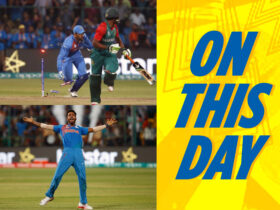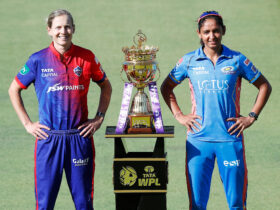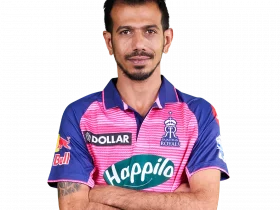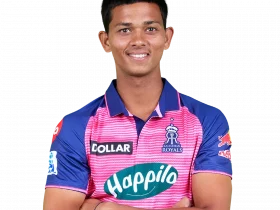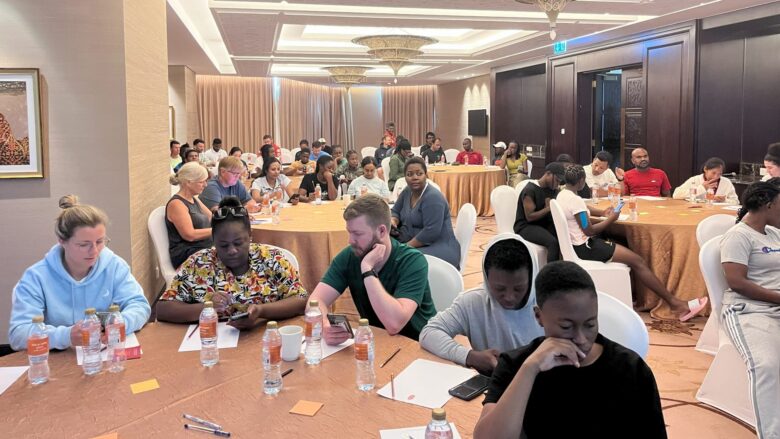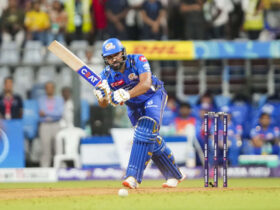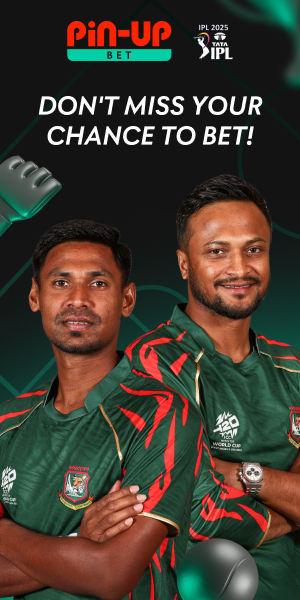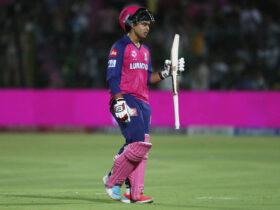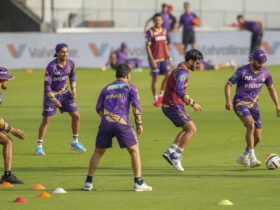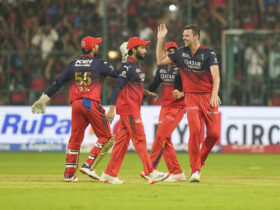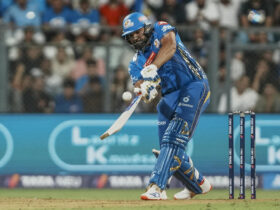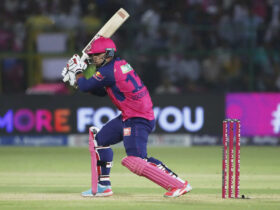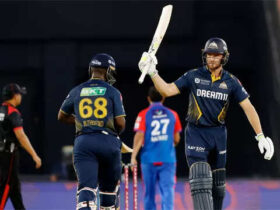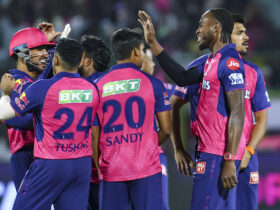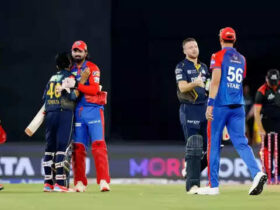ICC’s Women’s Health Workshop: A Milestone in Women’s Cricket
The ICC Women’s T20 World Cup Qualifier marks the first ICC event to provide sanitary products in all dressing rooms, a move that has been well-received by the teams.
At the workshop, teams received a printed version of the ICC Menstrual Health information sheet, a resource created by the ICC, which is available here.
The International Cricket Council (ICC) pioneered a Women’s Health Workshop for coaches during the ongoing ICC Women’s T20 World Cup Qualifier in Abu Dhabi.
The workshop is an extension of the ICC’s efforts throughout 2023 to educate players and staff about women’s health at global women’s events and five women’s pathway events.
All 10 participating teams were invited to the workshop, with most teams bringing their entire staff. In total, over 50 individuals from the 10 teams attended.
The session focused on understanding the challenges coaches face regarding women’s health while working with women’s teams. Topics included open discussions about menstrual health and how the ICC can provide support.
Staff also shared best practices from their own countries. The ICC facilitated discussions on creating environments where these conversations can occur openly, considering cultural, religious, and country-specific sensitivities.
ICC Medical and Anti-Doping Manager, Vanessa Hobkirk, said:
“The encouraging response from support staff, especially male coaches, on a topic as important as menstrual health was fantastic. Their willingness to engage in open discussions and learn more about how it impacts the athletes they work with is commendable.
“This is a significant step forward in creating a supportive environment within cricket. By incorporating their insights, the ICC can develop a more effective support system for coaches across its membership, ensuring that women’s health is appropriately addressed.”
Team Manager Ireland, Beth Healy, said:
“The more people involved in these conversations at this level of cricket, the better. The workshop certainly opened my eyes. In Ireland, we are more liberal and open and have conversations with the senior team if they want to opt in or opt out of the study around their cycles.
“It is good to see that the ICC is doing something about women’s health, which is very important. It has to continue for sure. Once the momentum is gained, countries will come on board and it should become a norm. I believe the member boards at the top-level CEOs etc have to drive those conversations and have the relevant policies in place.
“Pakistan has been monumental in implementing a parental policy for one of the players [Bismah Maroof] who had a child and then returned to cricket. It is a good example for other boards to consider.”
Head Coach Netherlands, Neil MacRae, said:
“The workshop that the ICC put on provided a huge amount of very valuable information. We certainly learnt a lot and there is plenty to explore while taking our team forward in the next few months.
“The forum was very interactive and it was great to see how the male and female coaches discussed various aspects and shared ideas. There was certainly a lot to learn which was the whole point of the session.”
Head Coach Sri Lanka, Rumesh Ratnayake, said:
“It was a fantastic awareness workshop that the ICC arranged. As part of the staff, we must know the various intricacies especially around menstrual health and challenges that the players face. It is very important that we give the players the confidence and the comfort to divulge details around their health and wellbeing.
“The awareness needs to spread across all countries. I hope the ICC can initiate a programme that all Members can follow and implement across their setups. Once we have the communication gap bridged, so much can be sorted.”
Head Coach UAE, Ahmad Raza, said:
“The workshop was really good; the forum helped us understand how a women’s cycle works and how the players react to it. The best thing about the forum was that all the teams took full participation and remained fully involved.
“Female health, especially their menstrual cycles, still remains a bit of a taboo subject for many societies. I think it is important to have female representation in teams’ support staff so that the players can approach them comfortably. It was a great idea to have an open discussion, I really feel that the forum was hugely beneficial.”
Meanwhile, the ongoing tournament is the first ICC event where sanitary products have been made available in all the team dressing rooms, an initiative that has received positive feedback from team support staff. The initiative will continue in this year’s ICC Women’s T20 World Cup which will be played in Bangladesh.


